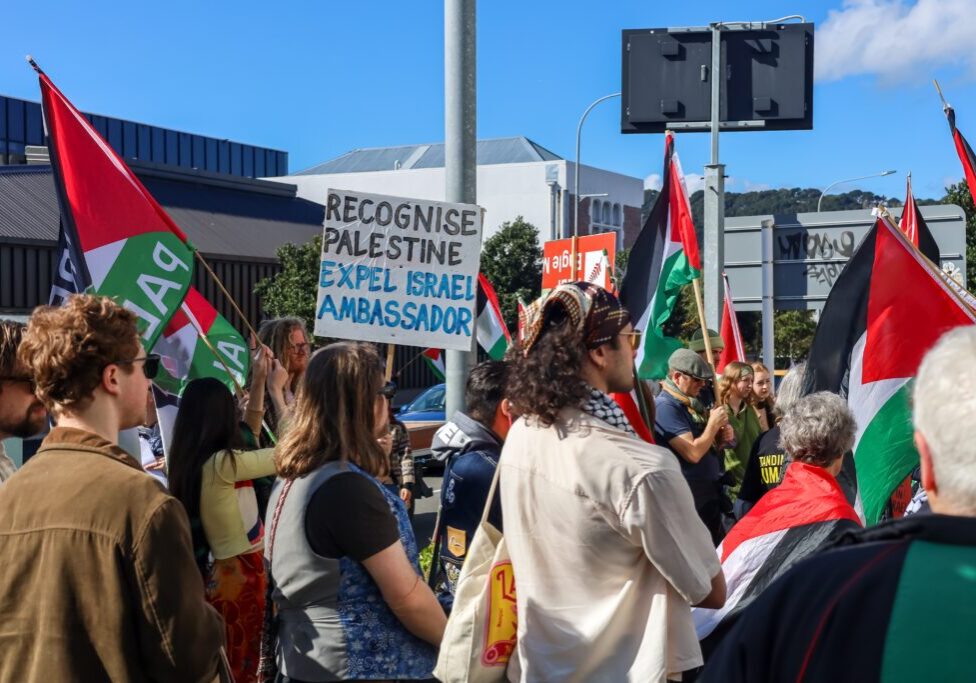Australia/Israel Review
Editorial: Up A Tree
Aug 1, 2011 | Colin Rubenstein
Colin Rubenstein
The Palestinian Authority’s (PA) bid to unilaterally seek UN recognition of an independent Palestinian state on the pre-1967 lines in September appears to be losing momentum – not least among Palestnians.
Diana Butto, a former legal adviser to Palestinian negotiators, said she expected a retreat from the UN strategy: “They [the Palestinian leadership] climb up trees and don’t know how to get down, except by falling out of the tree.”
Former PA Minister Nabil Amr used similar language in urging the PA to reconsider, arguing: “The leadership does not have any guarantees that it would be able to climb down safely from the tree”.
The PA’s plan to seek UN recognition of nominal statehood cannot lead to anything good for either Palestinians or Israelis, as even many Palestinians are now acknowledging. The US will likely veto any resolution on statehood in the Security Council, which alone has authority to grant UN entry, so the Palestinians will have to instead go directly to the UN General Assembly and seek recognition as a non-member observer state. A resolution to this effect would doubtless pass – although Israel is striving to get a “moral minority” of most Western states to refuse support. However, it would be largely symbolic, as the General Assembly can neither create a state nor admit it to the UN.
Unilaterally seeking such a UN resolution is not only unlikely to result in significant progress toward a genuine, as opposed to virtual, Palestinian state, but has a series of other potentially highly negative consequences. Firstly, it violates the provisions of the Oslo Accords, the legal foundation upon which the Palestinian Authority is founded. Moreover, by breaking off the cooperation between Israel and the PA on which the extraordinary recent growth in the Palestinian economy depends, it will almost certainly be economically disastrous.
This would be exacerbated if the Palestinians attempt to follow through on a September UN move with the campaign of measures against Israel predicted by noted Israeli Palestinian affairs expert Pinhas Inbari, including law suits, mass marches across Israel’s borders demanding the “right of return”, and attempts to demand the boundaries proposed in the 1947 Partition plan. Indeed, these measures – which amount to a complete repudiation of the Oslo process and a return to a slightly-updated model of “resistance” – would likely undo the last 20 years of progress toward Palestinian statehood.
But even in the absence of such an openly confrontational course with Israel, Palestinian officials have begun to voice fears that a symbolic UN Declaration could prompt public frustration, weaken the PA and strengthen hard-liners like Hamas. As PA spokesman Ghassan Khatib recently noted, “The Palestinian leadership has been promising or expecting to deliver in September. When it fails, it will undermine its public standing and strengthen the standing of the opposition.”
Given all this – the purely symbolic gains, considerable costs, and great risks – why is PA President Mahmoud Abbas pursuing the course he is, and putting himself “up a tree”, in the phrase of Amr and Butto?
It is not because, as Palestinian spokespeople maintain, there is no hope of achieving statehood through negotiations with Israel. All three of Israel’s major parties call for a two-state peace agreement, and polls show Israeli public opinion also overwhelmingly supports such a result, providing genuine peace is the outcome. The PA has rejected offers of a Palestinians state by Israeli Prime Ministers Barak and Olmert – packages which included everything that the Palestinians could reasonably expect.
Nor is it because of Israeli settlements, the claimed pretext for refusing to negotiate. It is worth repeating yet again that arrangements in place since 2003 have precluded new settlements being built, or settlements expanding their boundaries. Thus, settlement growth does not consume any additional land and does not affect the viability of any future Palestinian state.
So why has Abbas climbed so disastrously far up that unilateralist tree?
While it is impossible to know what is in his mind, it is difficult to go past the explanation offered by veteran Israeli Arab journalist Khaled Abu Toameh, who is well-acquainted with many of Abbas’ advisers. He argues that Abbas persists with this policy because he knows he cannot reach an agreement with any Israeli government. This is not just because the Palestinians are unwilling to compromise on any of the key issues in dispute – land, Jerusalem, refugees, etc.
The real obstacle is something even more fundamental.
According to Abu Toameh, even if all PA demands were granted, Abbas and Fatah, no less than Hamas, are unwilling “to commit to end the conflict” for fear of being denounced by both Palestinians and the Arab and Islamic countries for having “sold out” to the historic enemy.
Thus, Abbas appears to have chosen to pursue the counterproductive and risky UN stunt less out of fear that the Palestinians will not be offered a good agreement, than out of fear that they might be. If so, they would then have to refuse out of an inability to offer the one thing everyone agrees the Palestinians must give Israel as part of a two-state peace deal – namely peace and an end to the conflict.
In other words, Abbas’ climb up a unilateralist tree appears motivated by the unpreparedness of the Palestinian people for peace – any peace. Which means that by failing to courageously tell Palestinians the truth about the necessity for and pre-conditions of peace, by condoning and participating in official incitement, Abbas and the rest of the Palestinian leadership have been taking the Palestinian people up a very high tree – with no way to get down – for a very long time.
Tags: Palestinians






